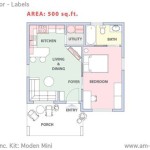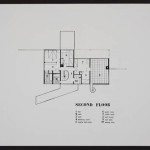Essential Aspects of House With Basement Plans
Creating a basement in your house offers numerous advantages, including extra living space, increased storage capacity, and improved home value. However, it's crucial to meticulously plan your basement design to optimize its functionality and maximize its potential.
When designing your basement, consider the following essential aspects:
1. Purpose and Functionality
Determine the primary purpose of your basement. Will it serve as a family room, a home office, a guest suite, or a storage area? Once you establish its intended use, you can tailor the design to meet those specific requirements.
2. Layout and Flow
Plan the basement layout to ensure a seamless flow of traffic. Consider incorporating defined zones for different activities, such as a seating area, a playroom, or a workshop. Adequate circulation space is also essential to prevent a cramped feeling.
3. Lighting
Basements often lack natural light, so it's crucial to incorporate ample artificial illumination. A combination of recessed lighting, under-cabinet lighting, and task lighting will create a bright and inviting space.
4. Ventilation
Proper ventilation is vital to maintain a healthy basement environment. Install an air exchange system or ventilation fans to remove excess moisture and prevent mold growth. Fresh air intake vents are also essential to ensure a constant supply of clean air.
5. Moisture Control
Basements are prone to moisture problems, so it's essential to implement effective moisture control measures. Waterproofing the foundation, installing a sump pump, and using moisture-resistant materials will help keep your basement dry.
6. Insulation and Energy Efficiency
Insulate the basement walls and ceiling to minimize heat loss and improve energy efficiency. Proper insulation will also help maintain a comfortable temperature and reduce energy costs.
7. Egress Windows
Ensure that your basement has at least one egress window that meets building code requirements. An egress window provides a safe escape route in case of an emergency.
Conclusion
Designing a basement involves careful planning and consideration of various factors. By focusing on these essential aspects, you can create a functional, comfortable, and valuable additional living space in your home. Remember to consult with an architect or contractor to ensure that your basement plans meet all building codes and safety regulations.

Simple House Floor Plans 3 Bedroom 1 Story With Basement Home Design 1661 Sf Basementdesignflo One New

Stylish And Smart 2 Story House Plans With Basements Houseplans Blog Com

Contemporary House Plan With 4 Bedrooms And 3 5 Baths 5311

Hillside House Plan Modern Daylight Home Design With Basement

Versatile Spacious House Plans With Basements Houseplans Blog Com

How To Plan For A Finished Basement Chiefblog

Basement Floor Plans Types Examples Considerations Cedreo

Basement House Plans Next Level Homes

Designs For A House Basement And Ground Floor Plans Riba Pix

House Plans With Finished Basement Home Floor








